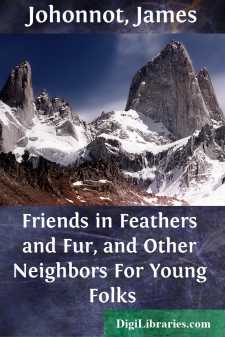Categories
- Antiques & Collectibles 13
- Architecture 36
- Art 48
- Bibles 22
- Biography & Autobiography 813
- Body, Mind & Spirit 142
- Business & Economics 28
- Children's Books 15
- Children's Fiction 12
- Computers 4
- Cooking 94
- Crafts & Hobbies 4
- Drama 346
- Education 46
- Family & Relationships 57
- Fiction 11829
- Games 19
- Gardening 17
- Health & Fitness 34
- History 1377
- House & Home 1
- Humor 147
- Juvenile Fiction 1873
- Juvenile Nonfiction 202
- Language Arts & Disciplines 88
- Law 16
- Literary Collections 686
- Literary Criticism 179
- Mathematics 13
- Medical 41
- Music 40
- Nature 179
- Non-Classifiable 1768
- Performing Arts 7
- Periodicals 1453
- Philosophy 64
- Photography 2
- Poetry 896
- Political Science 203
- Psychology 42
- Reference 154
- Religion 513
- Science 126
- Self-Help 84
- Social Science 81
- Sports & Recreation 34
- Study Aids 3
- Technology & Engineering 59
- Transportation 23
- Travel 463
- True Crime 29
James Johonnot
James Johonnot was an American educator and writer born in 1823, known for his contributions to science education and pedagogy in the late 19th century. He authored several influential textbooks, including "Principles and Practice of Teaching" and "Geographical Reader," aimed at improving methods of instruction. Johonnot's works focused on making education more engaging by integrating real-world experiences and encouraging critical thinking in students. His progressive ideas influenced the development of modern teaching methods in the United States.
Author's Books:
Sort by:
by:
James Johonnot
CHAPTER I. DEFENSE OF FREEDOM BY GREEK VALOR. 1. The great events in history are those where, upon special occasions, a man or a people have made a stand against tyranny, and have preserved or advanced freedom for the people. Sometimes tyranny has taken the form of the oppression of the many by the few in the same nation, and sometimes it has been the oppression of a weak nation by a stronger one. The...
more...
by:
James Johonnot
HOW FOWLS LOOK. 1. Here we find the hen and chickens, a new company of our farm-yard friends. We see that they are very unlike the other friends we have been studying, and, though we know them well, we may find out something new about them. 2. Instead of a coat of hair or fur, the hen is covered with feathers, all pointing backward and lying over each other, so that the rain falls off as from the...
more...



